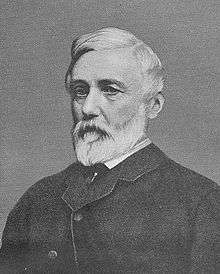William Young Sellar

William Young Sellar (22 February 1825 – 12 October 1890) was a Scottish classical scholar.
Sellar was born at Morvich, Sutherland, the son of Patrick Sellar of Westfield, Morayshire and his wife Ann Craig of Barmakelty, Moray. He was educated at the Edinburgh Academy and afterwards at the University of Glasgow. He entered Balliol College, Oxford, as a scholar. Graduating with a first-class in classics, he was elected fellow of Oriel, and, after holding assistant professorships at Durham, Glasgow and St Andrews, was appointed professor of Greek at St Andrews (1857). In 1863 he was elected professor of humanity in Edinburgh University, and occupied that chair till his death.
Sellar was one of the most brilliant of modern classical scholars, and was remarkably successful in his endeavours to reproduce the spirit rather than the letter of Roman literature.
Sellar is commemorated with his brother Alexander Craig Sellar, MP for Haddington Burghs and Glasgow Partick, on the south wall of Balliol College Chapel.[1]
Bibliography
His chief works are:
- The Roman Poets of the Republic (3rd ed., 1889)
- The Roman Poets of the Augustan Age (Virgil, 3rd ed., 1897),
- Horace and the Elegiac Poets (2nd ed., by WP Ker, 1899), with memoir by Andrew Lang,
References
- Attribution
 This article incorporates text from a publication now in the public domain: Chisholm, Hugh, ed. (1911). "Sellar, William Young". Encyclopædia Britannica. 24 (11th ed.). Cambridge University Press. p. 614.
This article incorporates text from a publication now in the public domain: Chisholm, Hugh, ed. (1911). "Sellar, William Young". Encyclopædia Britannica. 24 (11th ed.). Cambridge University Press. p. 614.
External links
| Wikisource has original works written by or about: William Young Sellar |
-
 Lang, Andrew (1897). "Sellar, William Young". In Lee, Sidney. Dictionary of National Biography. 51. London: Smith, Elder & Co.
Lang, Andrew (1897). "Sellar, William Young". In Lee, Sidney. Dictionary of National Biography. 51. London: Smith, Elder & Co. - Works by William Young Sellar at Project Gutenberg
- Works by or about William Young Sellar at Internet Archive